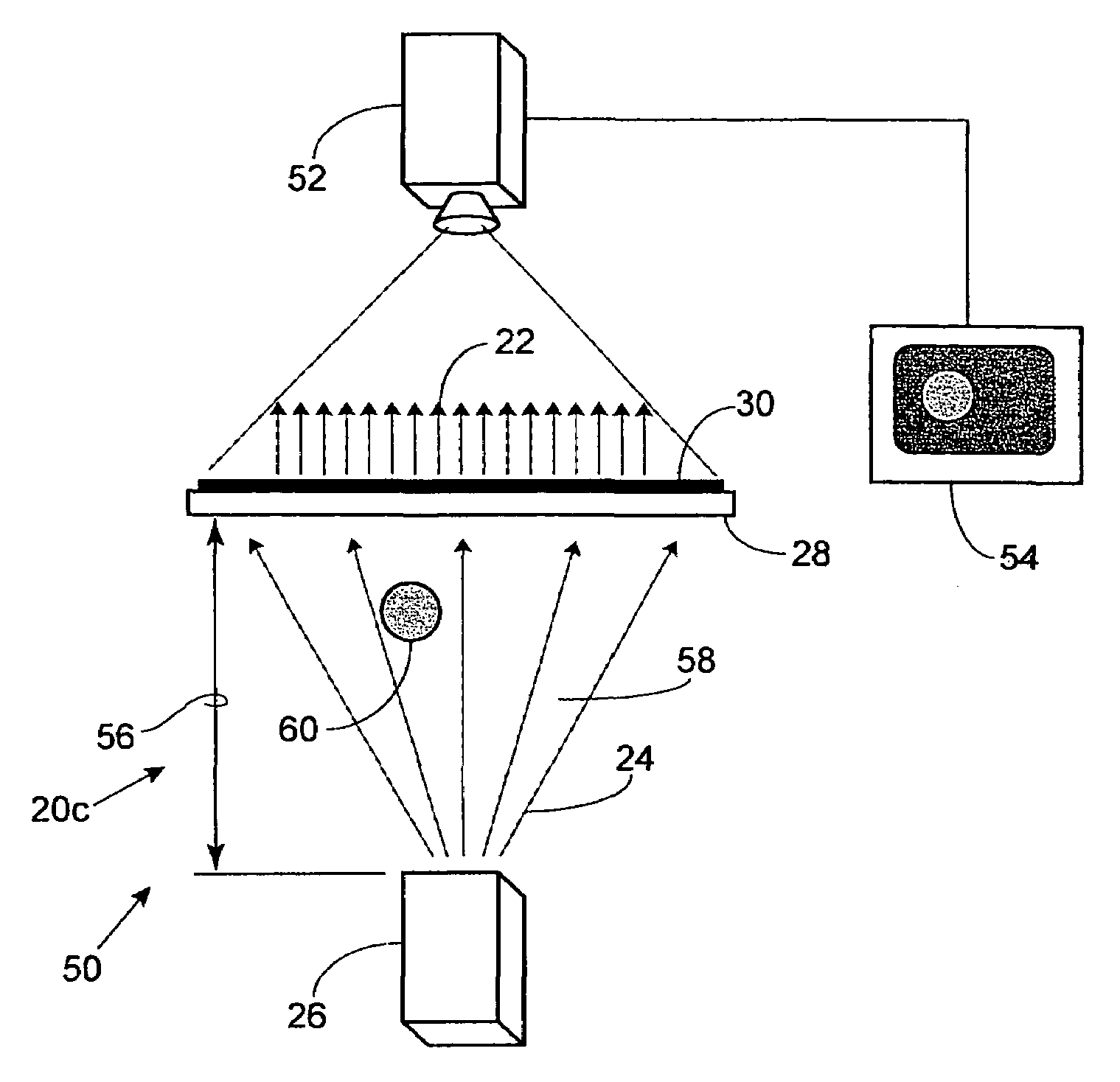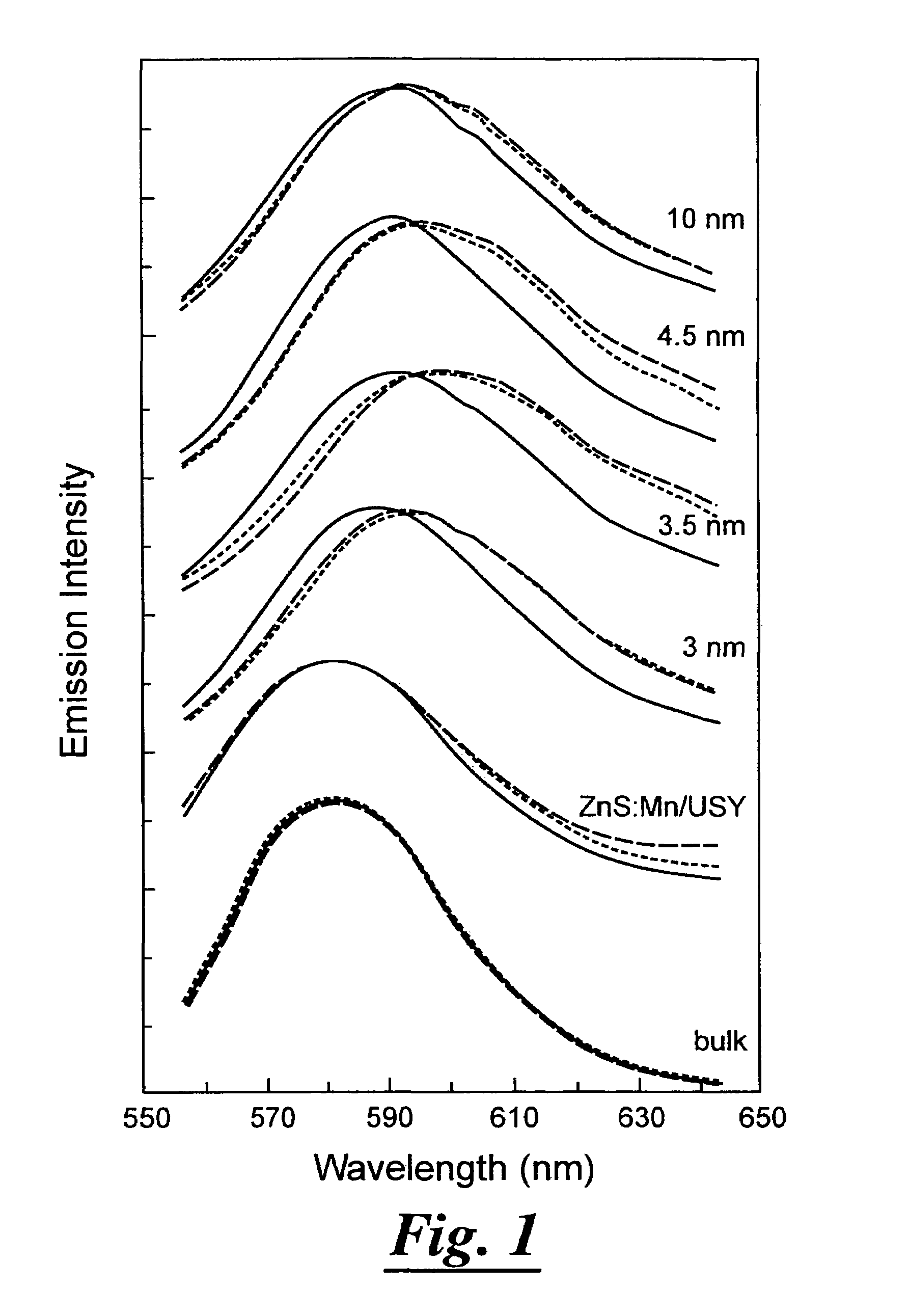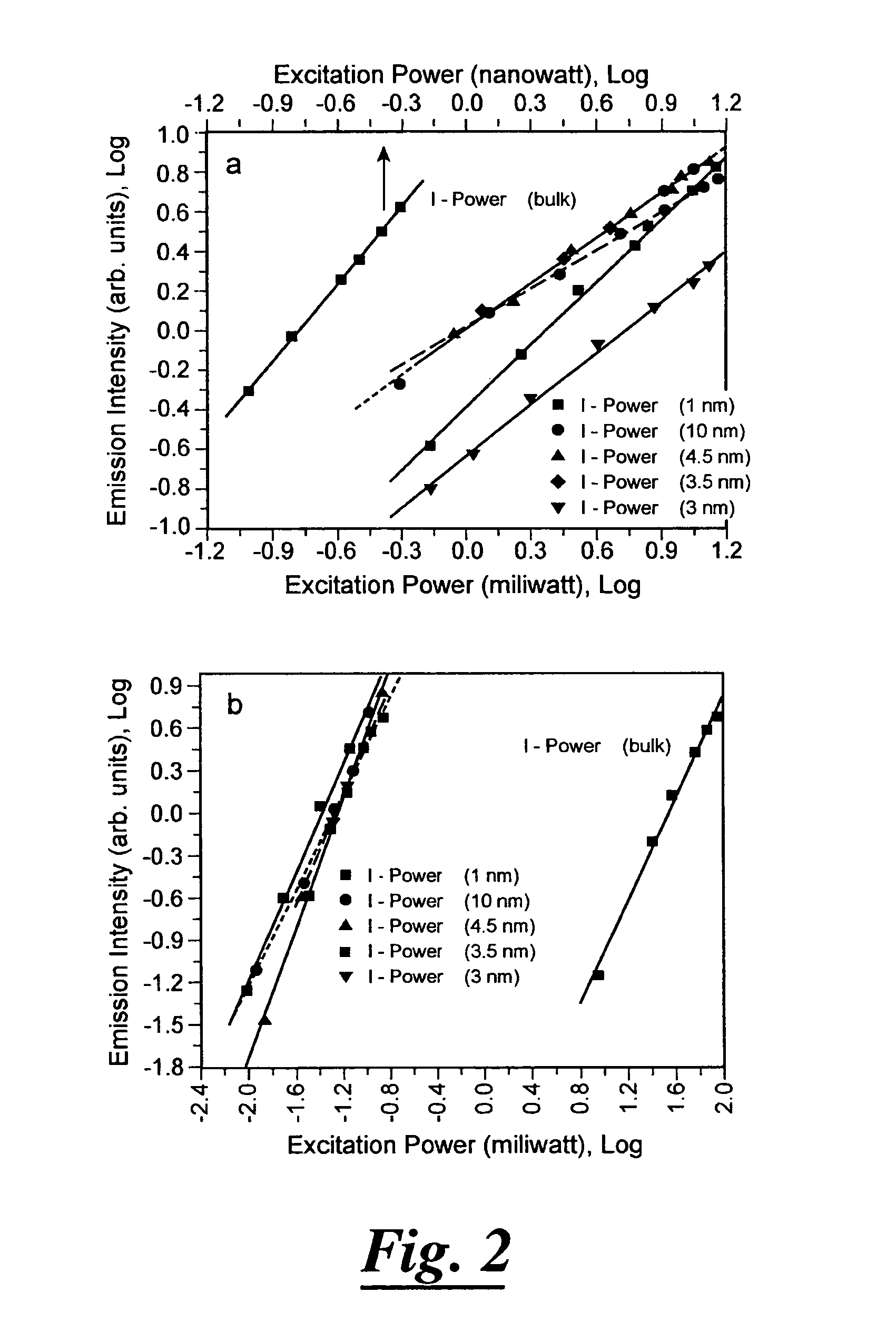Manganese doped upconversion luminescence nanoparticles
a luminescence nanoparticle and manganese technology, applied in the direction of fluorescence/phosphorescence, material analysis through optical means, instruments, etc., can solve the problems of weak upconversion luminescence, ineffective upconversion luminescence in oxides, and inability to stabilize halides in air, so as to reduce the luminescence intensity
- Summary
- Abstract
- Description
- Claims
- Application Information
AI Technical Summary
Benefits of technology
Problems solved by technology
Method used
Image
Examples
Embodiment Construction
[0045]Before explaining at least one embodiment of the invention in detail, it is to be understood that the invention is not limited in its application to the details of construction, experiments, exemplary data, and / or the arrangement of the components set forth in the following description or illustrated in the drawings. The invention is capable of other embodiments or of being practiced or carried out in various ways. Also, it is to be understood that the phraseology and terminology employed herein is for purpose of description and should not be regarded as limiting.
[0046]The term “nanoparticles” as used herein, can also refer to nanoclusters, clusters, particles, dots, quantum dots, small particles, nanostructured materials.
[0047]The presently disclosed and claimed invention relates, in general, to UCL materials and methods of making and using same. The UCL material is broadly defined as any material capable of UCL—i.e. any material capable of luminescence wherein the excitation...
PUM
| Property | Measurement | Unit |
|---|---|---|
| size | aaaaa | aaaaa |
| excitation wavelength | aaaaa | aaaaa |
| emission wavelength | aaaaa | aaaaa |
Abstract
Description
Claims
Application Information
 Login to View More
Login to View More - R&D
- Intellectual Property
- Life Sciences
- Materials
- Tech Scout
- Unparalleled Data Quality
- Higher Quality Content
- 60% Fewer Hallucinations
Browse by: Latest US Patents, China's latest patents, Technical Efficacy Thesaurus, Application Domain, Technology Topic, Popular Technical Reports.
© 2025 PatSnap. All rights reserved.Legal|Privacy policy|Modern Slavery Act Transparency Statement|Sitemap|About US| Contact US: help@patsnap.com



